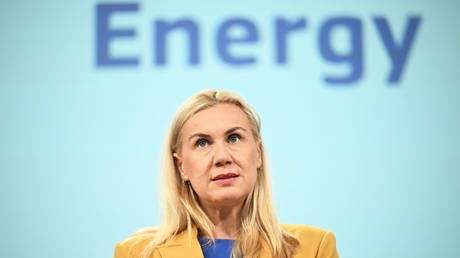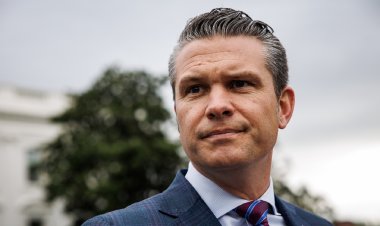EU Issues Warning on ‘Dangerous’ Russian Gas
According to Energy Commissioner Kadri Simson, the EU is ready for a situation in which there is no transit of Russian gas.

Any new agreement to maintain the flow of Russian gas to the European Union via Ukraine would be a “dangerous” choice, EU energy chief Kadri Simson stated on Tuesday.
In remarks made during a news conference after a meeting of the bloc’s energy ministers in Luxembourg, Simson expressed confidence that EU countries are fully equipped for a winter devoid of Russian gas.
This statement comes as a significant gas transit agreement between Moscow and Kiev is set to expire at the end of the year.
“There are no excuses, the EU can live without this Russian gas,” Simson said, as quoted by Bloomberg. “This is a political choice, and a dangerous one.” She emphasized that the European Commission is well-prepared for a zero-transit scenario, thanks to alternative supply routes and robust storage levels.
The State of the Energy Union Report released last month indicated that imports from “trusted partners,” like Norway and the US, have risen, with the bloc achieving its 90% winter gas storage target by August, ahead of the November 1 deadline.
Last month, Simson acknowledged that EU member states still significantly depend on Russian supplies, which made up 18% of the EU’s imports as of June 2024, a drop from 45% three years prior.
The EU has identified reducing reliance on Russian energy as a top priority after the escalation of the Ukraine conflict in February 2022. Sanctions against Moscow and damage to the Nord Stream pipelines resulted in a substantial reduction in Russia’s gas exports to the bloc.
Hungarian Prime Minister Viktor Orban remarked last week that Brussels’ avoidance of Russian energy has been detrimental to the EU’s economic growth. Hungary, along with other EU countries, including Austria, Slovakia, Czech Republic, and Italy, continues to import Russian pipeline gas.
The five-year transit deal between Kiev and Moscow, mediated by the EU, is set to expire on December 31. Earlier this year, Ukrainian leader Volodymyr Zelensky stated that Kiev would not extend the agreement and suggested that Ukraine could replace Russian gas with supplies from Azerbaijan for transit to the EU.
Ukrainian Prime Minister Denis Shmigal reiterated this position during discussions with Slovak counterpart Robert Fico last week.
Meanwhile, Russia has indicated its willingness to maintain deliveries beyond 2024. Gazprom CEO Aleksey Miller warned last week that the EU might be committing “energy suicide” by rejecting Russian gas. He argued that the bloc's policies may lead to further deindustrialization, increased market volatility, and could trigger a new gas price shock and supply disruptions.
Aarav Patel for TROIB News
Find more stories on Business, Economy and Finance in TROIB business












